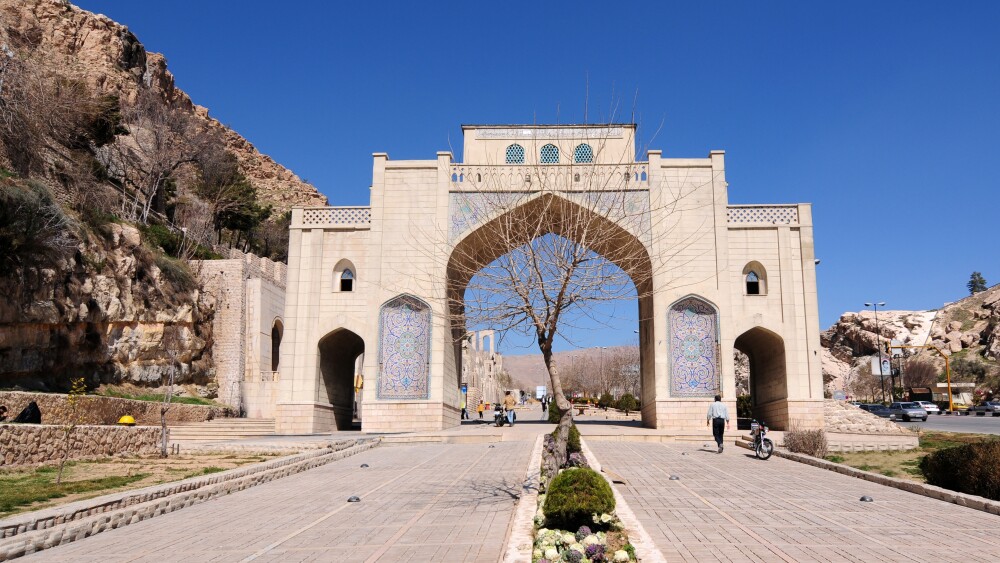Disgraced former Iranian UN envoy Mohammad Jafar Mahallati has resurfaced in Iran, presenting himself as an Oberlin College professor, despite allegations that saw him removed from his position in the US for covering up mass executions and committing sexual misconduct.
The Alliance Against Islamic Regime of Iran Apologists (AAIRIA), an Iranian-American advocacy group, found Mahallati in Shiraz, where he is listed as a senior researcher at the Majd Research Center.
His biography on the center’s website claims he is a “full professor of Religious Studies and Peace Studies at Oberlin College”—though the college dismissed him in 2023.
Return under false credentials
In May 2025, Mahallati co-organized and participated in the Sixth Annual Conference on Peace and Conflict Resolution at the University of Tehran.
He moderated a panel and gave a talk titled “The Complex Nature of Human Conflicts... A Qur’anic Perspective.” The program listed him using his former Oberlin title.
Mahallati was removed from Oberlin after AAIRIA launched a campaign outlining his role in whitewashing the 1988 executions of thousands of political prisoners in Iran.
The group also highlighted his antisemitic and anti-Baha’i rhetoric during his time as a UN envoy, and multiple allegations of sexual abuse, including rape and harassment at Columbia University in the 1990s.
The US Department of Education launched an investigation into Oberlin in 2023 for allegedly tolerating antisemitism on campus.
Following his removal, Oberlin scrubbed his profile from its website.
New platform, familiar faces
Another speaker at the Tehran event was Ali Akbar Mousavi, previously listed as a senior advisor and postdoctoral researcher at George Mason University’s Center for World Religions, Diplomacy, and Conflict Resolution.
His university profile now leads to a “Not Found” error.
The conference listed Mousavi as speaking on “Technology for Peace and Transformation in Conflict Management.”
Iran International contacted George Mason for comment but received no reply.
Lawdan Bazargan, AAIRIA’s director, said: “The Islamic Republic has long weaponized the language of ‘peace’ and ‘friendship’ to sanitize its image while continuing repression and destabilization at home.”
“Figures like Mahallati and Mousavi lend academic legitimacy to this propaganda and should be held accountable,” she added. “US institutions shouldn’t allow regime apologists to whitewash crimes as dialogue.”
Academic silence, state rhetoric
In what appears to be a rebranding effort, a 2024 website promoting Mahallati’s writings again lists him as a “full Professor of Religion in Islamic Studies” at Oberlin. The site provides no contact information.
Iran International contacted Oberlin’s VP of communications, Josh Jensen, and chief of staff David Hertz to ask whether the school has warned Iranian institutions or taken steps to stop Mahallati from using its name. No response was received.
Despite a three-year campaign by AAIRIA, Oberlin President Carmen Twillie Ambar and her staff refused to meet with Iranian-American advocates.
Though billed as a peace conference, the University of Tehran event included incendiary rhetoric.
Iranian science minister Hossein Simaee Sarraf called for Israel’s destruction: “It is hoped that... all Muslim nations and people of conscience will unite to overcome this savage and bloodthirsty regime,” he said.
Dr. Charles Randall Paul, founder of the US-based Foundation for Religious Diplomacy, also addressed the conference via Zoom. He did not respond to press inquiries.
Oberlin has largely ignored the Mahallati scandal since his removal. After student journalist Gigi Ewing graduated, the campus paper dropped coverage.
Ewing and her colleagues had earlier published a 2021 editorial titled “Evidence Against Mahallati Irrefutable.”








